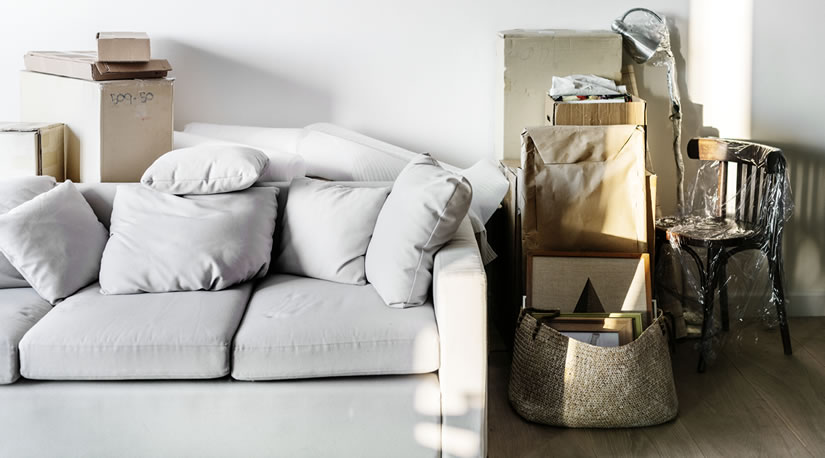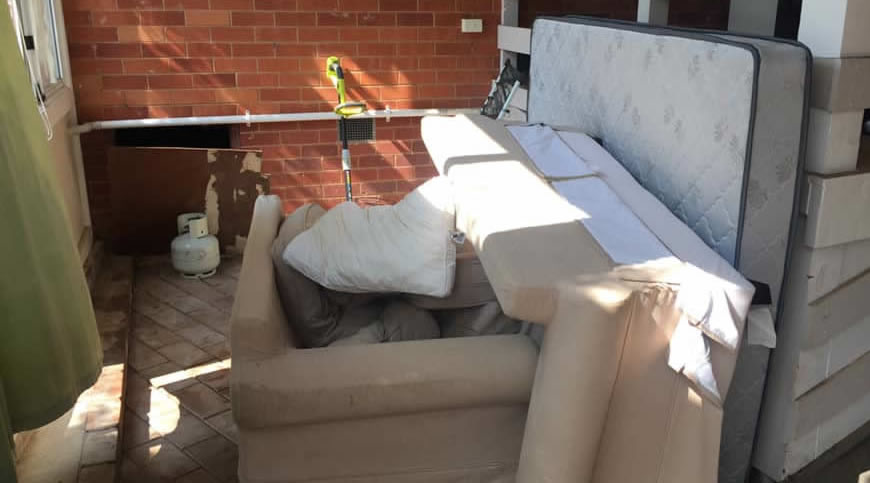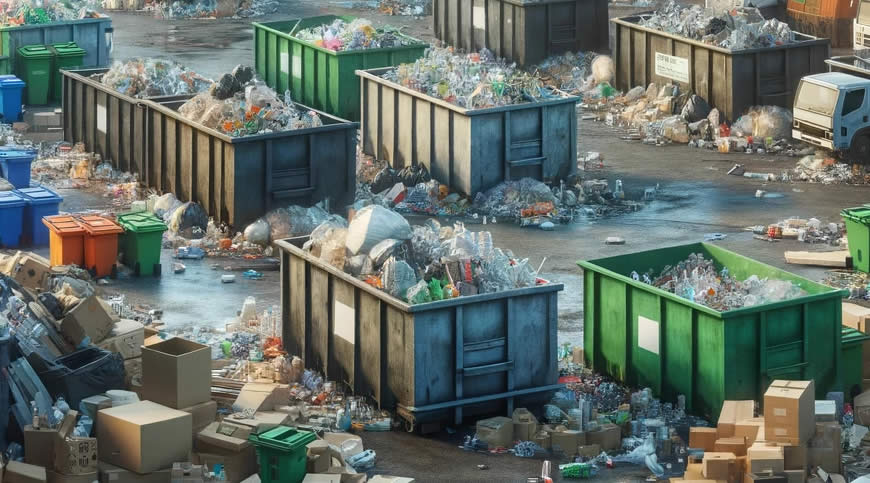
Have you ever found yourself wondering how to efficiently manage waste in your home? You are not alone. For many, the thought of waste management at home seems like a daunting task. But worry not, I'm here to guide you on how to organise your home for efficient waste management.
Why is it important, you ask? Well, efficient waste management not only helps you keep your home tidy and organised, but it also contributes to a cleaner environment. Plus, it could save you some money in the long run. So, it's actually a win-win situation!
- Understand Your Waste: The first step is understanding the different types of waste you generate. This can be categorized into recyclable, compostable, and residual waste.
- Segregate at Source: Once you've identified your waste, ensure to segregate it at the source. This simply means separating your waste into different bins according to their categories.
- Recycle: The recyclable waste should be cleaned and stored in a separate bin ready for recycling.
"The journey of a thousand miles begins with one step." - Lao Tzu
Take that first step today towards efficient home waste management. Remember, our small actions can have a big impact on the world. Stay tuned for more tips on how to manage your waste effectively at home.
Waste Management 101: Understanding the Basics
Are you tired of constantly clearing clutter and dealing with mounting waste at home? The good news is, it doesn't have to be this way. By understanding the basics of waste management, you can create a more efficient and healthier home environment.
The Three R's: Reduce, Reuse, Recycle
When it comes to waste management, the three R’s - Reduce, Reuse, and Recycle - reign supreme. These are not mere buzzwords, but essential concepts for efficient waste management.
- Reduce: This involves cutting down on the amount of waste you generate. Opt for products with less packaging, buy in bulk, and choose reusable over disposable items whenever possible.
- Reuse: Before tossing something in the bin, think about how it can be reused. Old jars can become storage containers, and worn-out clothing can be turned into cleaning rags.
- Recycle: This means transforming waste into new products. Check the recycling guidelines in your area and separate recyclables from general waste.
Setting up an Effective Waste Management System at Home
Once you've grasped the three R's, the next step is setting up a waste management system at home. This may sound like a daunting task, but it's actually simpler than you think.
The goal is efficiency – making the most out of your resources while producing the least amount of waste.
|
Step |
Action |
|
1 |
Get separate bins for general waste, recyclables, and compost. |
|
2 |
Put these bins in easily accessible areas. |
|
3 |
Label the bins and educate family members on what goes where. |
|
4 |
Regularly dispose of the waste in the appropriate manner. |
By setting up a system and sticking to it, you'll significantly reduce the volume of waste you produce, while making your home tidier and more organised.
Final Thoughts
Organising your home for efficient waste management is not just about keeping your living space neat and clean. It's also a step towards a more sustainable lifestyle, a contribution to the preservation of our planet.
Decluttering Your Home and Preparing for Efficient Waste Management
Before we delve into the nitty-gritty, let's take a step back. Efficient waste management starts with a decluttered, well-organised home. To get there, we'll need to roll up our sleeves and do a bit of housekeeping. Stay with me, it'll be worth it!
A Step-by-Step Guide to Decluttering
First off, let's tackle the clutter. A clean, clutter-free home paves the way for an efficient, seamless waste management system. Luckily, decluttering needn't be a massive, overwhelming task. Take it step by step:
- Start small: Pick one room or even a small corner to start with. The idea is to make the task manageable so it doesn't feel too daunting.
- Sort out: Separate items into three categories: keep, donate, and discard. The 'discard' pile is for items that are broken, worn out, or no longer usable.
- Dispose responsibly: Items in the 'discard' pile don't necessarily need to end up in the landfill. Recycle or compost what you can.
- Repeat: Move onto the next room or area until your entire home is decluttered.
Planning for Efficient Waste Management
Once your home is decluttered, it's time to set up a waste management system. Here's a simple plan to get you started:
|
Step |
Action |
|
1. Set up bins |
Have separate bins for rubbish, recycling, and compostable waste. |
|
2. Label |
Clearly label each bin to avoid confusion. |
|
3. Location |
Place bins in convenient locations. This encourages proper use. |
|
4. Regular disposal |
Regularly empty the bins to prevent overflow and odour. |
Efficient waste management is not only better for your home; it contributes to a healthier planet too. Your efforts make a difference!
And there you have it! With a decluttered home and a solid waste management plan, you're well on your way to a cleaner, greener lifestyle.
Maximizing Recycling Efforts: How to Do It Right
Ever wondered how to get recycling right? Well, recycling doesn't have to be a headache. In fact, with a bit of organisation, you could make it a seamless part of your home routine. Let's dive into the 'hows' and 'whys' of efficient home recycling.
Know Your Recyclables
First things first, you need to understand what you can and cannot recycle. Knowing this can make a world of difference. You'd be surprised at how many household items can be recycled – from plastic bottles to paper and glass.
- Plastic: Think bottles, containers, packaging. However, not all plastics are recyclable, so do check the recycling symbols on the items.
- Paper: Newspapers, magazines, envelopes, cardboard. Remember, greasy pizza boxes can't be recycled!
- Glass: Bottles and jars can be recycled over and over again. But, glassware and window glass have to be disposed of differently.
Set Up a Home Recycling Station
Now, let's take it a step forward. We're talking about setting up a home recycling station. This is nothing but a designated spot in your house where you collect recyclables. It could be a corner in your kitchen, garage, or even under the sink. The key is to make it accessible and easy to use.
Try using different bins for different materials. Colour-coding or labelling these bins can be a game-changer. It not only makes things tidy but also fun for kids (and adults too!).
|
Colour |
Material |
|
Green |
Glass |
|
Blue |
Paper |
|
Yellow |
Plastic |
Rinse, Dry, Recycle
Last but not least, always remember to rinse and dry your recyclables before tossing them into the bin. Why, you ask? Well, dirty items can contaminate the entire recycling batch. Plus, it keeps your home recycling station odour-free.
Clean recyclables mean better recycling outcomes. It's a small step for you, but a giant leap for the environment!
There you go! Organising your home for efficient waste management is as easy as knowing your recyclables, setting up a home recycling station, and rinsing and drying your items. Let's all do our bit to make our homes – and our planet – a bit greener!



